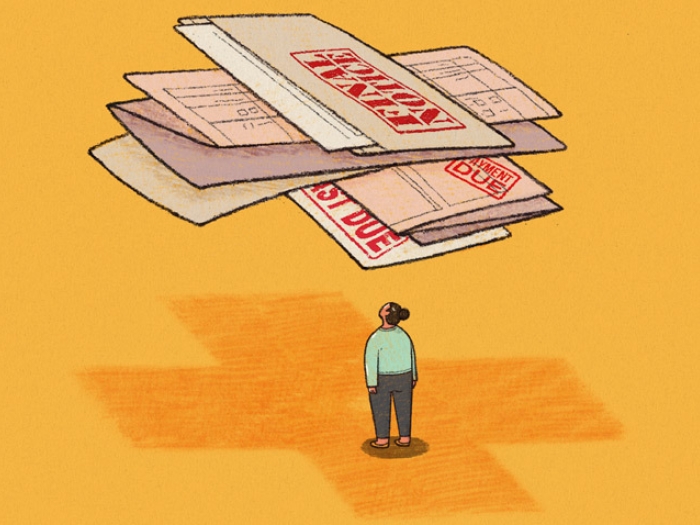Nearly a third of caregivers with a child treated in a pediatric intensive care unit experienced signs of money problems, research shows
3:30 PM
Author |

A stay in the pediatric intensive care unit can not only take a mental toll on caregivers, but it can also negatively affect their finances.
Nearly a third of caregivers responsible for a child who required intensive care in Michigan experienced signs of underlying financial burden, including delinquent debt or a low credit score, Michigan Medicine research suggests.
“Prior studies have shown a bidirectional relationship between a family’s financial status and a child’s healthcare outcomes,” said lead author Erin Carlton, M.D., M.Sc., a pediatric intensivist at University of Michigan Health C.S. Mott Children's Hospital. “Not only can family finances impact a child’s health, but our study suggests healthcare outcomes can impact the family’s finances.”
Carlton and fellow researchers analyzed statewide insurance data to evaluate financial outcomes following a child’s ICU stay among commercially insured families.
Prior studies have shown a bidirectional relationship between a family’s financial status and a child’s healthcare outcomes."
The study included more than 2,000 caregivers for more than 1,100 critically ill children between 2020 and 2021. More than half of critically ill children had a chronic condition, and the average hospital stay was around three days.
Caregivers whose financial outcomes were measured following a child’s intensive care hospitalization were significantly more likely to have objective evidence of financial burden, including medical and non-medical debt, compared with caregivers whose financial outcomes were measured before a their child’s hospitalization, suggests the research that appears in Critical Care.
“I think the biggest takeaway is that a significant percentage of families have some evidence of financial burden both before and after their child’s intensive care hospitalization,” Carlton said. “This tells us that these families may face substantial stress both leading in to and after the hospitalization.”
Carlton says the team is working on longer term studies that will allow them to follow children and their families over years to further understand the impact of acute hospitalization on finances.
The study follows Carlton’s previous research showing that families of children who are insured pay about $1,300 out of pocket for their hospitalization.
“We know that an acute hospitalization can actually have pretty significant out of pocket costs even for insured families,” Carlton said.
Carlton and colleagues have created the Michigan Health Economics Affordability Lab (M-Heal) to further understand the financial burdens families face while seeking care. Carlton brings her expertise from a pediatric standpoint, while her colleagues provide insight from general and adult medicine, trauma surgery, and obstetrics and gynecology.
The group works together towards a common goal of trying to understand and mitigate financial burden.
Michigan Medicine offers support through its MSupport financial assistance program. MSupport may be available to those who are uninsured, insured but cannot afford their out-of-pocket costs, or insured but receiving services that are not a benefit of their insurance plan.
Additional authors: include Michelle Moniz, John Scott, Hallie Prescott and Nora Becker.
Study Cited: “Financial outcomes after pediatric critical illness among commercially insured families,” doi.org/10.1186/s13054-023-04493-8
Sign up for Health Lab newsletters today. Get medical tips from top experts and learn about new scientific discoveries every week by subscribing to Health Lab’s two newsletters, Health & Wellness and Research & Innovation.
Sign up for the Health Lab Podcast: Add us on Spotify, Apple Podcasts or wherever you get you listen to your favorite shows.

Explore a variety of health care news & stories by visiting the Health Lab home page for more articles.

Department of Communication at Michigan Medicine

Want top health & research news weekly? Sign up for Health Lab’s newsletters today!





